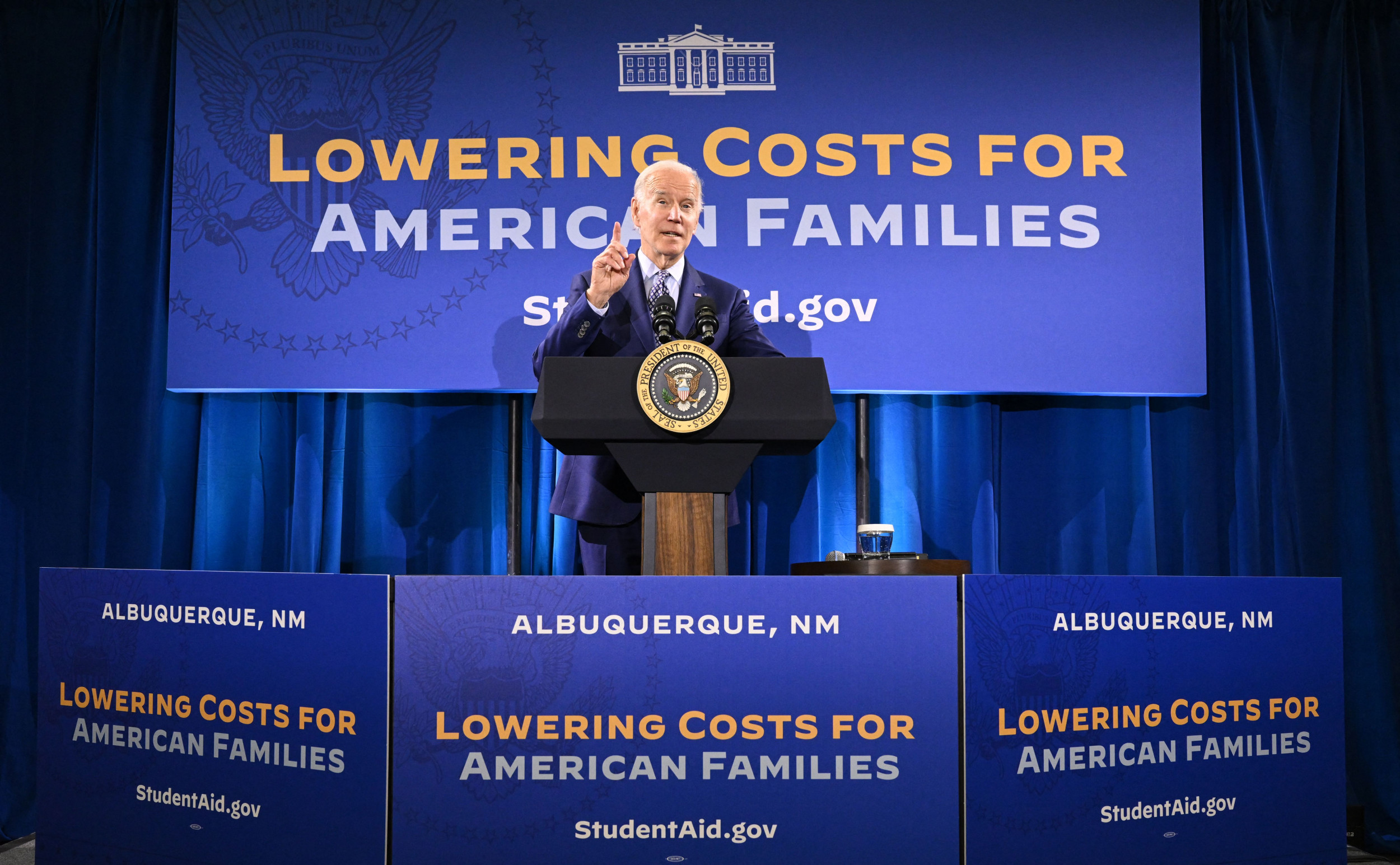The Ontario government has announced new border security measures designed to prevent illegal border crossings and the smuggling of illegal firearms and drugs.
Why It Matters
President-elect Donald Trump has threatened to implement a 25 percent tariff on all goods from Canada if the country does not clamp down on immigration and the flow of drugs across its border with the U.S.
The move by the Ontario government suggests Trump's effort to strong-arm Canada into enforcing tougher border security may be working.

What To Know
On Tuesday, the Ontario government announced that it had launched Operation Deterrence, an initiative that involves 200 Ontario Provincial Police officers dedicated to enhancing border security.
The Canadian province shares a border with Minnesota, Michigan, Ohio, Pennsylvania and New York. According to the news release, the OPP has been ramping up patrols across the extensive border with the use of airplanes, helicopters, drones, boats and patrol vehicles.
Ontario said its operation, described as a "preparedness and planning framework," would focus on activities beyond the 14 official border-crossing sites staffed by federal border agents.
"In partnership with the Royal Canadian Mounted Police (RCMP), Operation Deterrence activity will be enhanced through the use of the emergency response team, frontline officer and additional specialty resources, including canine units, commercial motor vehicle inspections and criminal investigators," the news release said.
Ontario has not received any additional funding from the federal government for the new border measures. However, Ontario officials participated in a joint planning and readiness exercise with federal authorities on Friday to enhance coordination at the border, according to the news release.
In December, amid Trump's threats to slap a 25 percent tariff on Canadian goods, Canada's federal government announced a $1.3 billion plan to enhance border safety and its immigration systems.
The strategy incorporates advanced technology, expanded law enforcement resources and improved cross-border cooperation with the U.S. It is designed to combat illegal drug trafficking, boost border inspections and streamline immigration procedures.
Data from U.S. Customs and Border Protection shows a dramatic surge in migrant encounters along the northern border. Agents recorded more than 198,000 encounters during the 2024 fiscal year—marking an increase of more than sevenfold compared to 2021 figures.
What People Are Saying
Ontario Premier Doug Ford said in a news release: "Ontario has been calling on the federal government to step up and address safety and security concerns at the border. We need to see words turned into visible action. In the meantime, Ontario is stepping up with Operation Deterrence to crack down on illegal border crossings and illegal guns and drugs. A more coordinated, Team Canada approach that includes more boots on the ground is the only way to detect, deter and disrupt illegal activity and ensure the safety and security of Canadian and American communities."
Ontario Solicitor General Michael Kerzner: "Our government has been crystal clear—securing our shared border is essential to keeping streets across Ontario, Canada and America safe. Operation Deterrence will put concrete actions in place that will put a halt on the flow of illegal guns and drugs into our province and protect communities on both sides of the border."
Valerie Lacarte, a senior policy analyst for the U.S. Immigration Policy Program at the Migration Policy Institute, told Newsweek: "Canada has a long history of managing immigration to match its demographic and economic needs. And there is a relatively small share of unauthorized immigrants in Canada. Overall, the Canadian approach has brought many benefits to the country and a thoughtful response to current challenges by the government could ensure the perennity of that system."
Karoline Leavitt, a spokesperson for the Trump-Vance transition team, told Newsweek: "President Trump was given a mandate by the American people to stop the invasion of illegal immigrants, secure the border, and deport dangerous criminals and terrorists that make our communities less safe. He will deliver."
What Happens Next
Trump is set to return to the White House on January 20. Canada, whose prime minister resigned on Monday, is due to hold its next federal election by October.
The opposition Conservative Party is leading in the polls. It finished 2024 with a 21-point lead over the governing Liberal Party, enough to deliver a significant majority government of more than 200 seats, according to CBC News.








![SOURCE SPORTS: [WATCH] Mets Capt. David Wright Gives Interesting Insight On The Honor Of His Jersey Retirement In Citi Field](https://thesource.com/wp-content/uploads/2025/01/01fs75fy836w8mp4ytwr.webp)











 English (US) ·
English (US) ·